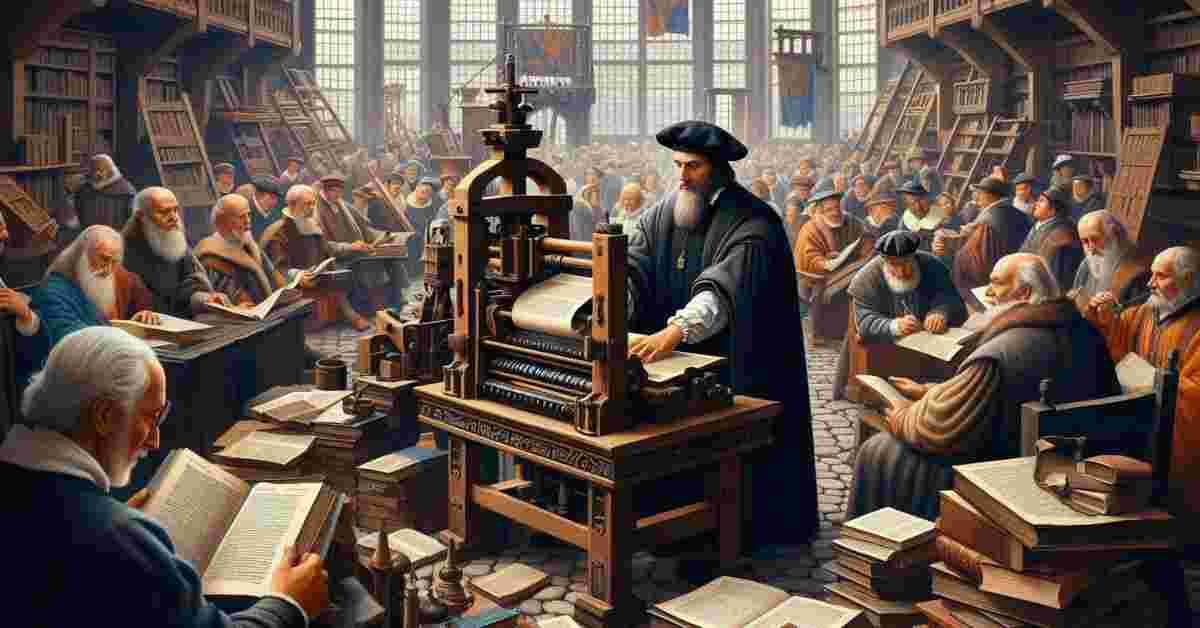What Is The Print Revolution, And How Did It Influence Society?
Short Answer:
The Print Revolution was the 15th-century game-changer that Gutenberg kickstarted with his printing press. Think of it as a medieval internet launch. Suddenly, books weren’t just for monks or kings – they became everyday items. People got ideas, started questioning authority, and boom, revolutions happened. It wasn’t just about spreading knowledge; it was about shaking up society.
Detailed Answer:
Okay, let’s dive into the chaos of the 15th century. Picture a world where books are more exclusive than designer bags. Seriously, a single book could take years to hand-copy. Then comes Johannes Gutenberg, who basically said, “What if we hacked a wine press to mass-produce books?” And just like that, the Print Revolution was born.
Now, this wasn’t just some nerdy invention – it was pure disruption. Here’s how it flipped Europe on its head:
- Religion Got Rocked: Martin Luther didn’t just pin his 95 Theses on a church door – he printed pamphlets. Suddenly, peasants were like, “Wait, we can read this?” The Catholic Church? Totally blindsided.
- Science Went Viral: Galileo basically used the printing press to go, “Hey, the Earth isn’t the center of the universe!” It was like the Renaissance version of dropping a truth bomb on Twitter.
- Revolutions Brewed: Books gave rebels a voice. From Voltaire to Rousseau, ideas of liberty and equality spread faster than a TikTok dance trend.
But here’s the kicker: not everyone was thrilled. Authorities freaked out. Imagine kings and priests screaming, “Stop the presses!” It was chaotic and glorious all at once.
Personally? I think this was one of history’s biggest glow-ups. Books went from being a luxury item to something even peasants could afford. Sure, not all of them could read, but hey, baby steps. It reminds me of when smartphones became affordable – suddenly, everyone had access to the same info, and society just… shifted.
Oh, and one fun fact: Gutenberg’s first bestseller? A Bible. But the real revolution wasn’t just about religion – it was about putting knowledge into the hands of everyday people. Honestly, that’s kind of beautiful, don’t you think?

